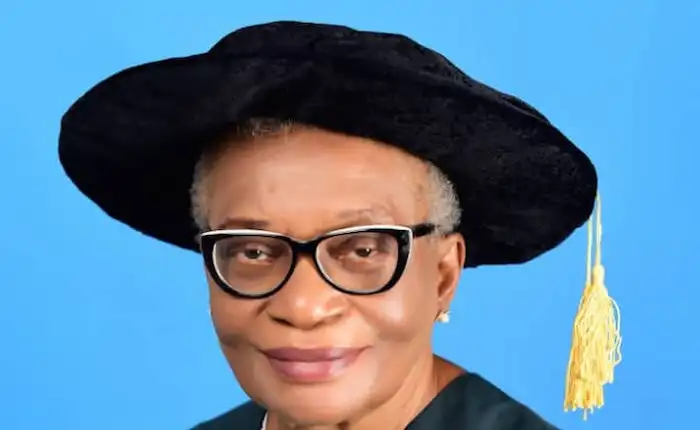Professor Ekanem Ikpi Braide, is the 19th president of the Nigerian Academy of Science (NAS) and the Academy’s first female president in 44 years of existence.
Born on the 6th of March 1946, Braide is a Nigerian Parasitologist, whose focus is on disease control, particularly, operational research, impact assessment of interventions, rapid assessment methods in mapping diseases and community initiatives in disease control.
Her experience in the science world is interesting, in that, she initially wanted to study English because she was good at writing but her father convinced her to study science.
“I reluctantly did but soon loved science! The problem-solving aspect attracted me. I chose Zoology for my first degree and Parasitology and Epidemiology for Masters and Doctorate because I had a strong interest in disease control. There is so much joy in working around determinants to end an epidemic. It is like winning a war! It has been smooth up to this point,” she said.
Braide served at the Nigerian Institute for Trypanosomiasis Research(NITR), Kaduna from 1978 to 1979 as a programme officer/researcher. She later joined the University of Calabar in 1979 as a lecturer and was promoted to the rank of Professor in 1991.
In 1987, she worked with Carel de Roy of the United Nations Children Fund (UNICEF) and colleagues to study the morbidity and impact of guinea worm disease in rice production in Nigeria, the famous rice bowl study which convinced government of Nigeria of the need to control the disease because results showed that the health and socioeconomic impact on rice farming alone was enormous.
In 1997, Braide was part of a team put together by UNICEF and federal government to conduct a mission to Honduras to study the very successful community participation in Water, Hygiene and Sanitation projects. In 1999, she was the team lead in the federal government mission to validate onchocerciasis prevalence in Benue State.
Within the period 1988-1998, during Prof. Olikoye Ransome Kuti as Minister, Braide was seconded to the Federal Ministry of Health to serve as the Zonal Facilitator, South East Zone in the Nigerian Guinea worm Eradication Programme.
“As a Zonal Coordinator I initiated a number of innovative community directed strategies for preventing and containing guinea worm disease in the South Zone (now South East and South South).
“The terrain was difficult because the disease affected the very poor in remote and hard-to-reach places, but we worked collectively with strong support from federal government and partners in reducing number of cases from 653,000 in 1988 to Zero in 2009, implementing health education, distribution of cloth filters, vector control, advocacy for safe water, treatment of impure water, and voluntary isolation of cases in an integrated manner,” she said.
Braide served on the Ministerial Expert Advisory Committee on COVID set up by the Hon Minister of Health and Chaired by Prof Oyewale Tomori, to advise the Hon Minister as necessary. She also served on the African Scientific Research and Innovation Committee (ASRIC) COVID-19 Advisory Board chaired by Prof Oyewale Tomori.
She never expected to be treated differently and so worked hard all the time to make it the peak of her career. Though, the civil war disrupted her education and she lost a few years but that only made her work harder. “Having my first child in my first year in the University meant that I had to adjust to raising kids while studying. I was strongly supported by my husband, colleagues and teachers. I always aim high so my achievements are always near the peak,” she said.
She has numerous awards from the church, government, workplace, community, etc. These three (Cross River State 2000 Millennium Award; Officer of the Order of the Federal Republic (OFR), awarded by the President of Nigeria for my contribution to disease control in Nigeria (2010) and Jimmy/Roslynn Carter Award for outstanding dedication and achievement in the eradication of guinea worm in Nigeria (1994)) have to do with her contribution to Universal Health Coverage at State, National and International levels.
As the first female to be the president of the Nigerian Academy of Science, Braide said, she will continue to work hard to influence policy at all levels that will strengthen science education at the primary and secondary schools and provide enabling environment for basic and inclusive education for boys and girls.
She however advised young female scientists, to manage time properly so as to comfortably cope with extra work time required in science. “Work smart and aim high!, she added.





